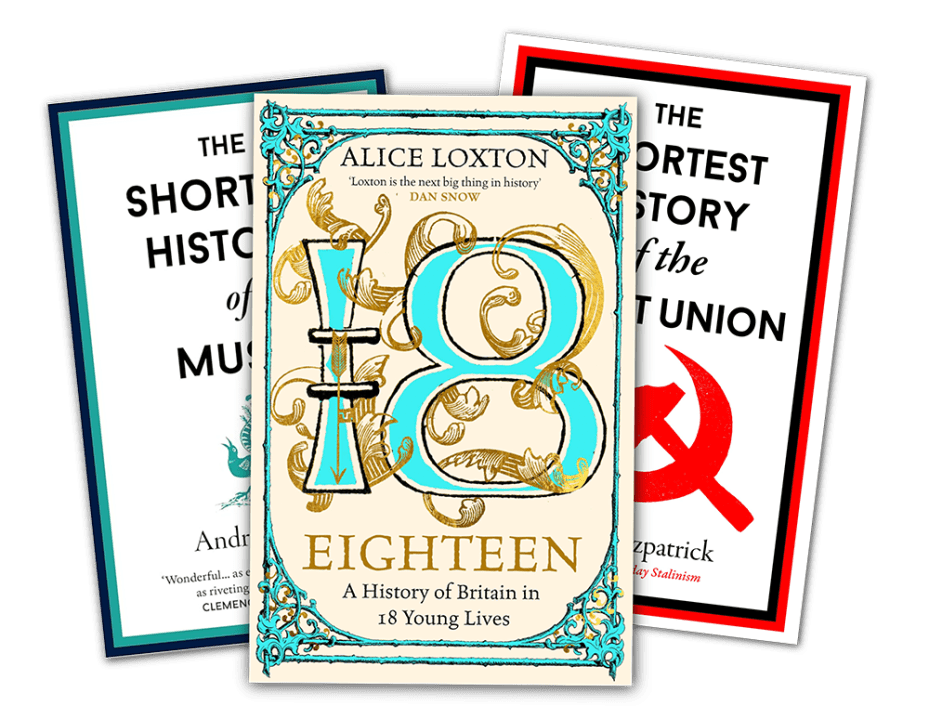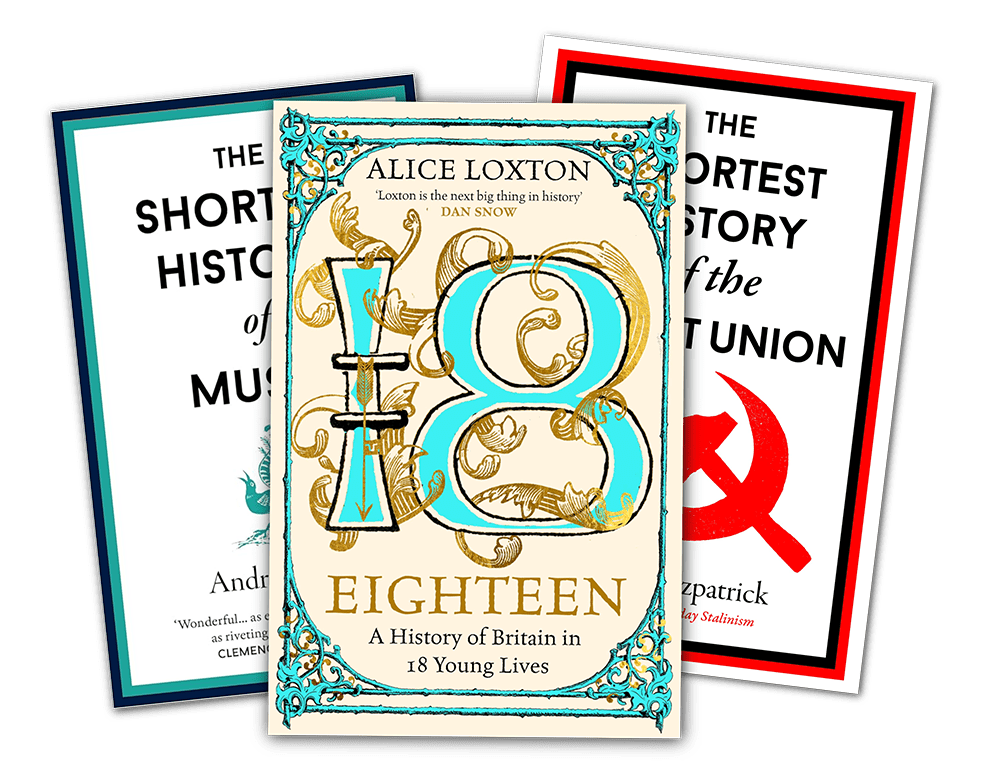
Alice Loxton has narrated this article for you to listen to.
My friend Ruby recently started a TikTok channel called ‘Too Long Didn’t Read’. With boundless enthusiasm and a colourful wardrobe, she prances around Hampstead Heath, summarising classic novels in 60 seconds. The channel ‘sums up anything ever written so you can talk about it to your mates’.
Ruby is not alone in her approach of offering such educational digests. Scan the tables at Hatchards in Piccadilly and you will find endless shortest histories, or – for brevity’s sake – ‘shistories’. Popular formulas include ‘The Shortest History of …’, ‘A Brief History of … or ‘A Little History of …’.
New publications include The Shortest History of Scandinavia by Mart Kuldkepp, professor of Estonian and Nordic history at UCL (out in hardback next month), and Andrew Ford’s The Shortest History of Music (out in paperback in July). In it, Ford acknowledges the limitations of the format: ‘No history of music – let alone the shortest – can hope to be comprehensive.’ Ford’s answer to this dilemma is to focus on specific episodes that tell the macro-story.
Which brings us to the sister genre, ‘list-ories’, which neatly packages history into numbered lists. This week’s Sunday Times non-fiction chart features two examples: A History of Britain in Ten Enemies by Terry Deary and A History of the World in 47 Borders by Jonn Elledge. As the author of Eighteen: A History of Britain in 18 Young Lives, I am fully complicit in this epidemic.
These sorts of books sell, which is why publishers churn them out. The question, though, is why readers are so drawn to such bare-bones history. The primary reason is ease. Short histories serve as cheat sheets in the quest for self-improvement. They offer a fast, manageable way to feel as if we understand big topics.
Much of the problem is borne of guilt. We feel we should understand cultural movements and have an opinion on political crises, and so short histories are marketed as an easy way to plug the gaps. Fearing ourselves to be uncultured swines, we search for a quick fix. Knowing ourselves to be busy and distracted, we buy the book we are realistically most likely to read, the compact one, wherein we hope to get the gist of a subject rather than a deep understanding. And – oh joy! – the book fits in our pocket.
Some will say our short attention spans are a large part of the problem. No longer can we tackle an enormous plate of literary nourishment. Instead it must be chopped up for us, into palatable chunks. What’s next? ‘A History of Britain in Ten Pages’?
But catch-all histories are in fact nothing new. E.H. Gombrich’s A Little History of the World (1935) and H.G. Wells’s A Short History of the World (1922) were hugely popular when published. In 1791, Jane Austen, at the age of 15, wrote The History of England (describing herself as ‘a partial, prejudiced and ignorant historian’). It is a short, witty account of British monarchs, which ‘pokes fun at the overly verbose and grand histories of her day’, according to its current publisher.
To come briefly to the defence of short histories, there is something liberating about how noncommittal they are, for reader and author alike. They are a haven for the undecided, an opportunity to try out a period of history without fully committing to the bigger tomes. And though we have more free time than our ancestors, today’s information overload creates a feeling that we can never keep up. Lists do at least give some semblance of control. The predictability allows us to develop mental maps – ‘schemata’ – which make it easier to process information. Listories also offer a nifty way to present a ‘new take’. Like a gallery re-hang, familiar subjects are enhanced by a new setting.
When I was writing Eighteen, I compared the adolescence of historic figures: the Venerable Bede, Elizabeth I, Richard Burton and Vivienne Westwood, to name a few. Though each life has been well documented by others, it was the comparison between a specific aspect of their lives which provided the new angle. It was also less daunting. Writing any ‘History of Britain’ is a big task; writing 18 biographies (and even then, only covering the first 18 years) felt more manageable.
Perhaps there is nothing wrong with these fleeting formats devised to democratise information. The more history the better. Whatever format you choose, it’s all well and good in my (very short) book.
Why do bite-sized histories have such big appeal? Alice joined The Edition podcast alongside the historian Professor Simon Heffer:








Comments